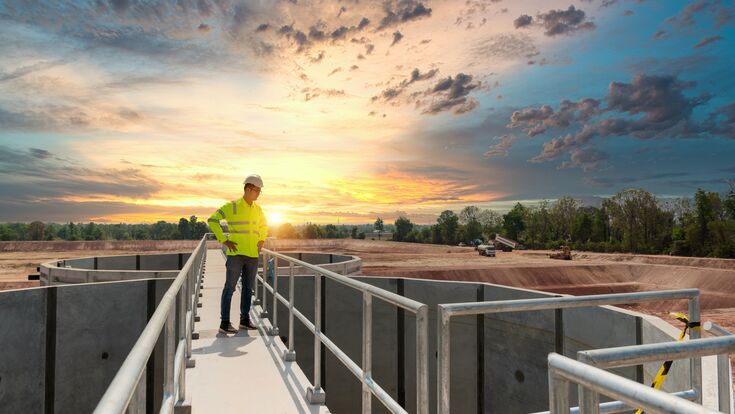Wastewater : Food waste to be co-digested into biogas in Korean underground wastewater treatment plant

A new underground wastewater treatment plant serving 700,000 people in the municipality of Anyang, South Korea will use thermal hydrolysis technology (THP) to co-digest organic waste. South Korean engineering, procurement and construction (EPC) contractor Posco E&C awarded Norwegian firm, Cambi, a contract to supply its B12 THP process plant for the Anyang Sewage Treatment and co-digestion project.
The CambiTHP system will co-digest about 27,000 dry tons of organic waste per year, of which 65% is sewage sludge and the remaining 35% food waste. Biogas produced from the co-digestion plant will be turned into electricity and as heat for the CambiTHP TM and digestion processes. Remaining high dry solids dewatered product after digestion will be dried and blended with millet grass to produce a biomass fuel for co-firing in existing power plants.
Mr. Lim, site manager of Posco E&C Anyang Bagdal, said he expects a "substantial sludge reduction and increased biogas production from the installation of CambiTHP technology". Atila Mellilo, chief executive of Cambi, said: "In addition to operational and environmental benefits, the fact that the plant is located underground allows the Municipality of Anyang to benefit from a small footprint and substantial savings in capital expenditures associated with the construction of digesters.”
The contract represents a breakthrough into South Korea for Cambi, following contracts signed in China and an announcement this week for the Jurong water reclamation plant in Singapore. ### Read more Food waste to biogas thermal hydrolysis facility for Oslo Biogas CHO unit for small scale anaerobic digestion claims £5.7m ROI over 20 years Two fraction underground recycling system opened in India’s first smart city
